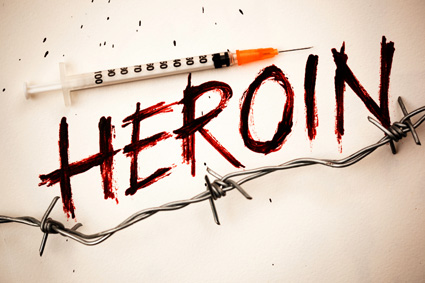NC Keep Right
Friday, March 21st, 2014 Driving slowly in the left hand lane is not just a pet peeve, but causes a hazard by negatively impacting the flow of traffic.
Driving slowly in the left hand lane is not just a pet peeve, but causes a hazard by negatively impacting the flow of traffic.
This forces faster moving traffic to pass in the right hand lane. Drivers hoping to pass a slow left hand lane driver often signal a lane change toward the center median, flash headlights, or drive very close to the bumper to the slow left hand lane driver, which is known as tailgating.
The left hand lane which is also referred to as the fast lane, inside lane, or passing lane is reserved for faster moving vehicles wishing to pass or overtake. The United States Uniform Vehicle Code states the following: “Upon all roadways any vehicle proceeding at less than the normal speed of traffic at the time and place and under the conditions then existing shall be driven in the right-hand lane then available for traffic.”
Some states, including North Carolina, have made it illegal to drive slowly in the left hand lane and fail to yield to traffic that seeks to overtake.
In North Carolina, travel on a multi-lane roadway is governed by N.C.G.S. §20-146(b):
Upon all highways any vehicle proceeding at less than the legal maximum speed limit shall be driven in the right-hand lane then available for thru traffic, or as close as practicable to the right-hand curb or edge of the highway, except when overtaking and passing another vehicle proceeding in the same direction or when preparing for a left turn.
A violation of this law is an infraction pursuant to N.C.G.S. §20-176 (a) and if convicted, North Carolina Division of Motor Vehicle would assess 2 drivers license points pursuant to N.C.G.S. §20-16 (c), or 3drivers license points if the violation occurred during the operation of a commercial motor vehicle.
Most of the laws prohibiting driving slowly in the left hand lane however seem to only be enforced to stop suspicious vehicles or passengers.
Generally, one should always be aware of their surroundings especially while driving and move lanes if they find themselves holding up traffic – the choice to travel in the right hand lane should be made already out of consideration for other travelers, to increase traffic safety, to reduce traffic congestion, and to improve emergency response.
By Jana H. Collins, Office Manager

 Heroin is a highly physiologically addictive narcotic derivative of morphine but has a higher potency than morphine. C.R. Alder Wright – an English chemistry and physics researcher in London – was the first to synthesize heroin in 1847. Heroin usually appears as a white or brown powder or as a black sticky substance, known as “black tar heroin.” The name Heroin stems from Bayer, the German Pharmaceutical Company. Bayer named the first diamorphine product Heroin and made its first fortunes in the late 1890s when it
Heroin is a highly physiologically addictive narcotic derivative of morphine but has a higher potency than morphine. C.R. Alder Wright – an English chemistry and physics researcher in London – was the first to synthesize heroin in 1847. Heroin usually appears as a white or brown powder or as a black sticky substance, known as “black tar heroin.” The name Heroin stems from Bayer, the German Pharmaceutical Company. Bayer named the first diamorphine product Heroin and made its first fortunes in the late 1890s when it 
 The New York Times recently published a story entitled “Driving Under the Influence, of Marijuana.” The story suggested that driving under the influence of marijuana (pot) is much less risky than driving while impaired by alcohol. The report also indicated that it is difficult to detect impairment by pot with the standardized field sobriety tests used in DWI by alcohol cases, and it is difficult to confirm impairment with laboratory tests. The article discusses several studies making these findings and noted the conclusion of some experts that public resources would be better spent combating alcohol-impaired driving, including perhaps lowering the per se threshold for alcohol concentrations to 0.05, than in establishing a per se limit for blood-THC content or devising roadside tests to detect for marijuana impairment.
The New York Times recently published a story entitled “Driving Under the Influence, of Marijuana.” The story suggested that driving under the influence of marijuana (pot) is much less risky than driving while impaired by alcohol. The report also indicated that it is difficult to detect impairment by pot with the standardized field sobriety tests used in DWI by alcohol cases, and it is difficult to confirm impairment with laboratory tests. The article discusses several studies making these findings and noted the conclusion of some experts that public resources would be better spent combating alcohol-impaired driving, including perhaps lowering the per se threshold for alcohol concentrations to 0.05, than in establishing a per se limit for blood-THC content or devising roadside tests to detect for marijuana impairment.